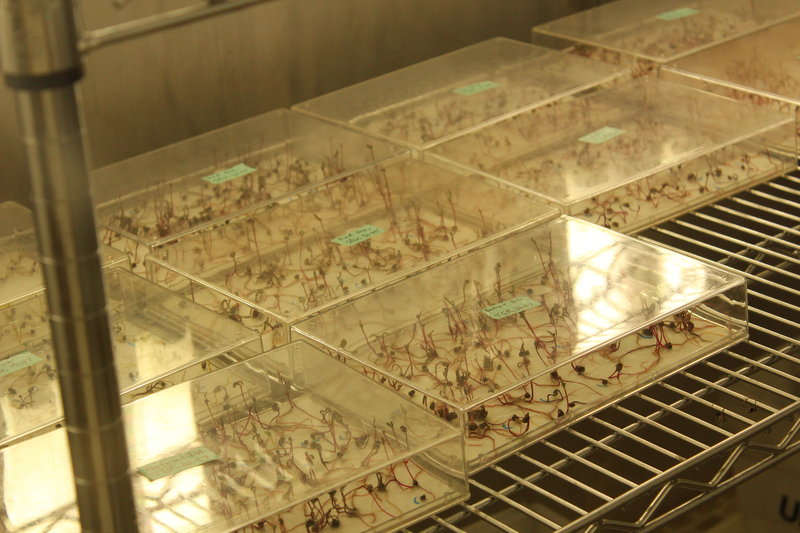A Self Evaluation Form for Seed Production

Paul Hrycyk
The first few brainstorming sessions focused on what sorts of skills to include on our list, what criteria were most important, and even how the list should be structured. The process generated a lot of ideas. We all agreed that this was not meant to be a training document. Instead it would be a list of abilities and skills that all seed savers and growers in the network would need to have in order to make sure that the seed we were producing and bulking up was high-quality. We call these skills “competencies.”
We wanted this list of competencies to reflect what we thought were most important for VSPN members. VSPN members are not the backyard seed savers; they are professionals who have been asked to adhere to a strict set of standards in order to produce high quality, pure seed. They have numerous years of experience growing vegetables, and at least a few years’ experience learning and understanding how to grow seeds. Since they are already experienced, it wasn’t as important to us to list basic criteria and methods, like how to space plants or when to plant seeds.
As we further defined the competency list, we decided not to include sections about ecological farming practices or the business aspects of seed production. All VSPN members already understand and practice ecological farming, and we thought that getting into the business side of seed production would derail the idea we were focused on and really would be a separate document on its own.
The competency list will focus on two main sections: high-level seed production and harvesting and seed quality assurance. We also considered adding a section that goes over on-farm plant breeding, but decided that falls outside the scope and purpose of this list.
The seed production and harvesting section will include skills such as ensuring effective isolation distances, planning for selection and roguing, and assessing and choosing equipment solutions for different scales of production.
Quality assurance will cover topics such as identifying storage conditions that may negatively affect seed germination rates, accurate and consistent germination testing, and employing measures of horizontal resistance by crop type.
The competency list will look like a self-evaluation form. It will list the requirements, or the criteria and skills we believe are important for skilled seed producers to know, and will ask growers to rate their ability in each area. This will mean growers can self-identify the areas they need to focus on to produce better quality seed. It also will be a tool for new growers who are interested in producing seed but don’t know where to start. There is certainly a lot of information out there and the intention of creating this list is to put all the key skills needed to master seed production in one place. It will also be a great tool for beginner seed savers, seed workshop presenters, and seed library trainers!
Keep an eye out for the competency list in early April!
**
This project was funded in part through Growing Forward 2, a federal-provincial-territorial initiative. The Agricultural Adaptation Council assists in the delivery of Growing Forward 2 in Ontario.

Paul Hrycyk is the coordinator of the Vegetable Seed Producers Network (VSPN).
Not yet a member?
An annual membership to Seeds of Diversity gives you access to our seed exchange, seed grow-out programs, and our online news.

We depend on donations to do our work.

Thank you for your support!
